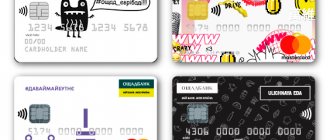Hello, dear readers. Many newcomers taking their first steps into the world of cryptocurrencies are wondering where is the best place to store Bitcoins and what precautions should be taken.
To store digital money, there are special wallets that contain secret keys to access the Bitcoin address where the coins are stored. They come in different types and are designed for different types of devices. But the issue of security is relevant, regardless of the type of wallet chosen.
What is a Bitcoin wallet?
Bitcoin is a kind of modern equivalent of cash, which is gradually becoming widespread. In some countries, cryptocurrency has already received a legal basis and is accepted as a means of payment for various goods and services.
In addition to understanding how Bitcoin functions, how it is mined and how to buy this coin, you should also know how to store it. With traditional cash, we store it in a wallet, and with Bitcoin we do the same thing, except the wallet is software.
Blockchain technology and cryptocurrencies. Fast start
Get the book and learn all the basics of blockchain technology and cryptocurrency in one evening
To be absolutely clear, Bitcoins are not technically stored anywhere. What is in the hands of the owner are secure digital keys used to access cryptocurrency addresses and digital signatures for transactions. It is this information that is stored in the wallet.
These digital wallets come in different types. For 2020, there are five main types of wallets: desktop, mobile, online, hardware and paper. Their choice depends entirely on the personal preferences of each user.
Bitcoin wallets for computer
This type of wallet is divided into two subtypes: “thick” and “thin”. The first requires downloading the entire blockchain and updating it regularly. The latter can do without this procedure, but have a lower level of security, since they receive all the required information from third-party resources. Essentially, they have to trust a third party in this process.
Among the popular “thin” ones it is worth noting Electrum, MultiBit and DarkWallet. MultiBit is available not only for Windows, but also for Mac OSX and Linux.
The creation and restoration of Electrum is based on a 12-word special phrase (“seed”). It should be stored in a safe place. This feature protects users from any kind of troubles in the form of hard drive problems, hardware failures, etc.
DarkWallet uses a lightweight browser plugin through which it provides access to various services, including coin mixing.
Hive runs on OS X and has some unique features, including an app store that connects directly to the blockchain network.
An example of a “thick” wallet is the original Bitcoin client (Bitcoin Core). In addition to relaying transactions across the network, its software also allows you to create addresses for sending and receiving virtual currency and store private keys for each of them.
There are other PC wallets with different features. Some are designed to improve security, such as Armory. Others focus solely on increasing anonymity.
Bitcoin wallet for PC
Bitcoin wallets for PC require installation on a computer. At the moment, such wallets are considered the most secure. The owner of a PC wallet can control the level of protection himself and manage his bitcoins without the involvement of intermediaries. Basically, this storage method is preferred by advanced users and people who want to store large amounts of bitcoins for a long time.
Depending on the tasks being implemented, there are “thick” and “thin” wallets for PCs. “Thick” ones require downloading and storing all the blocks, which will require a large amount of free space on your hard drive. And accordingly, only owners of PCs with high technical parameters will be able to afford such a wallet. But, despite the significant cumbersomeness of this storage method, it is these Bitcoin clients that will help ensure the highest degree of security and anonymity.
Among the most popular “thick” wallets is Bitcoin Core. This Bitcoin client was one of the first to be launched, and still occupies a leading position. This program is constantly being improved and updated and can be installed on almost all PCs. But it is worth considering that since this wallet is very resource-intensive, you should not count on its high speed.
“Thin” wallets do not require downloading and storing the entire blockchain. Due to this, the speed of their operation increases significantly and the power requirements for your PC are reduced. Such wallets can easily be installed on netbooks or tablets. But it is worth reading that the level of security of such Bitcoin clients is somewhat due to the fact that some blocks are downloaded from third-party servers. This means that the risk of transferring data to a third party increases.
Among “thin” wallets, Electrum is the most popular. This wallet allows you to store bitcoins offline without requiring an internet connection. In addition, this program allows you to restore your wallet using a special code.
Mobile Bitcoin wallets
Wallets for computers are not always convenient if you need to make a payment not on the Internet, but in a regular store. In Russia, payment with cryptocurrency is not yet so common, but in countries such as Japan it is already becoming commonplace. In this case, you cannot do without a special mobile application. It can be easily installed on a smartphone, allows you to store keys for Bitcoin addresses and makes it possible to pay directly from the gadget.
In some cases, it is even possible to use the near-field communication (NFC) function of a smartphone, allowing you to connect your mobile device to the reader and pay for purchases with coins without having to enter any information.
One of the common features of mobile wallets is that they are not full-featured ("thick") Bitcoin clients, requiring downloading of the entire blockchain, which is constantly growing. This would be inconvenient for smartphones, which simply would not have enough memory for this.
Instead, such mobile clients are often designed with a simplified payment verification (SPV) system. They download a small portion of the blockchain and rely on trusted blockchain nodes to ensure they receive the correct data.
Examples of mobile wallets on Android:
- Xapo;
- Bitcoin wallet;
- Blockchain;
- Mycelium;
- Hive Bitcoin & Litecoin Wallet;
- Electrum;
Bitcoin wallets for iOS devices:
- Hive Bitcoin & Litecoin Wallet;
- Blockchain;
- GreenAddress;
- Copay;
- Coin Pocket;
- BitWallet;
- breadWallet;
There are other types of wallets that can be used on mobile devices, such as the CoinPunk browser-based wallet. Another unusual option is Aegis Bitcoin, which supports Android smart cards.
Store your bitcoins in different places
The rule of “don’t put all your eggs in one basket” applies equally to both fiat and digital currency. For short-term and long-term investments, it is recommended to use different storage methods.
The most convenient solutions often turn out to be unreliable. Thus, online wallets, which are most often subject to hacking, are ideal for daily expenses, as well as mobile wallets on a smartphone, which can be lost at any time. But this does not mean at all that you need to stop using them. It's just not a good idea to keep all your bitcoins on your phone or wallet. It is enough to top up your account once or twice a week from a more reliable storage facility.
Online Bitcoin wallets
This type of wallet stores the private keys of users on the Internet. They are hosted on a server controlled by third parties. There are several such services, some of which are related to wallets for mobile devices and PCs. This allows you to replicate addresses between different devices of the same owner.
One of their advantages is that they can be accessed from anywhere there is Internet access, regardless of the device used. However, they also have one major drawback. Such sites may be subject to hacker attacks, which could potentially lead to the loss of private keys and loss of control over the coins stored in the wallet. Therefore, it is not recommended to use them to store large amounts of cryptocurrency. It is not safe. It is better to use them for various kinds of regular payments and one-time purchases on the global network.
Coinbase allows you to manage your Bitcoins from anywhere in the world. Users in the US and Europe can even buy coins through the built-in exchange service.
Circle offers users around the world the ability to store, send, receive and buy digital money. Currently, only US citizens are able to link their bank accounts to this wallet, but a number of other countries already have the ability to link bank cards to them.
Blockchain also has a popular web wallet, and Strongcoin offers what it calls a hybrid option, which allows private keys to be encrypted before being sent to their servers. Encryption is performed in the browser.
Xapo also aims to provide a convenient and simple Bitcoin storage service with the added security feature of cold storage.
Online wallets
The easiest way to store bitcoins is to create an online wallet. There are many services on the Internet that allow you to create such a wallet. The most popular include:
- Coinbase;
- Circle;
- Blockchain;
- Xapo.
And such services are widely popular. After all, Internet wallets do not require the installation of special programs, there is no need to download blocks of data, and they can be accessed from any device connected to the network. But there are also pitfalls here. All data is stored on the service. This means that if there are malfunctions in the operation of this service, or passwords are intercepted, you can easily lose your savings.
Bitcoin hardware wallets
The variety of this type of wallet is currently still very limited. These are specialized devices that can store private keys electronically and facilitate transactions.
Trezor hardware wallet
This device, developed by SatoshiLabs, is designed to store Bitcoin. It is aimed at users who have a significant amount of coins, but do not want to rely on third-party storage services and not always practical methods of “cold” storage of cryptocurrency.
USB Ledger
The compact USB drive uses secure smart service and is available at a reasonable price. Back in 2014, CoinDesk reviewed this wallet and published its review of the device.
KeepKey
In September 2020, KeepKey released its hardware wallet. Its software was originally a fork of the Trezor code.
Many companies are currently developing hardware wallets, including Mycelium, Cryptolabs and BitStash, but so far no truly production-ready products have hit the market.
In February 2014, the Nymi sports bracelet from Boinym was announced, which, according to the developers, can act as a Bitcoin wallet. It used the user's heart rate as a security key, but it never went on sale.
In addition to the trading platform, the Magnr service also offers a coin storage service. It uses Multi-Sig wallets and cold storage technology.
How to store bitcoins - the most reliable places
BTC is a strong and viable cryptocurrency, which is called “digital cash” and even “virtual gold”. By leaving your bitcoins in an unsecured place, their owner must be prepared to lose them forever.
Everyone stores BTC differently, but not everyone manages to save their funds.
You should not completely trust online services for storing savings. Any of them may be subject to a hacker attack or disappear altogether along with the cryptocurrencies of their users. Storing bitcoins yourself (for example, in an offline wallet) is more difficult, but much safer.
Passwords and codes for online services for storing BTC, as well as for wallets, should not be simple. You cannot use passwords with which you log in to other resources. If it is difficult to come up with a strong password or passphrase, use special generator programs. The main thing to remember is that it is impossible to reset the password for a Bitcoin wallet. If you lose it, you will irretrievably lose your funds.
When transferring virtual coins to an offline wallet, you need to do three things:
- protect them with the most complex password possible;
- remember or write down in a secret place;
- Make sure your computer is protected: you need an effective anti-virus program with the latest updates.
Happy owners of a large number of digital coins are recommended to store them on a medium not connected to the Internet.
There are many ways to store Bitcoin and other coins. It is important to choose the safest place.
There are also such extraordinary solutions as:
- Paper wallet or offline bitcoin wallet generator Piper. It is a device similar to a receipt printer, the sole purpose of which is to create the most secure Bitcoin wallets. It does not connect to the Internet and is not accessible to hackers.
- Trezor Dedicated Storage Device is a secure hardware wallet for cryptocurrencies created by Czech developers. Connects via USB, compatible with Mac, Linux, Windows. Authentication is carried out using a PIN code.
Paper Bitcoin wallets
One of the most popular and cheapest options for storing cryptocurrencies are so-called paper wallets. There are several websites offering similar services.
These kinds of services allow you to create an address and two QR codes. The first is a public address that you can use to receive coins. The second is a private key used to make payments.
The advantage of a paper wallet is that personal keys are not stored digitally anywhere and therefore are not at risk of being stolen as a result of a simple cyber attack or lost if the device is damaged.
Paper wallet
A paper wallet is a document containing two generated QR codes. One of these codes is a private key that can be used to spend bitcoins. And the second is public, used to receive coins.
You can create a paper wallet by turning to specialized online services. Such services will help you create a Bitcoin address and generate QR codes. The received data is printed on plain paper and saved.
Having printed your paper wallet, you should take its safety very seriously. If third parties gain access to it, you may lose all your savings. In addition, if stored carelessly, the paper media may be damaged.
Are Bitcoin wallets anonymous?
On the one hand, this cryptocurrency is completely anonymous, but on the other hand, all transactions are completely transparent and freely traceable. Because of this, BTC is often called pseudo anonymous.
This circumstance led to the formation of a number of communities whose purpose was to track suspicious transactions and then contact the blockchain “police.” To counter this, the user community has developed ideas to increase anonymity, such as merge prevention, hidden addresses, and coin mixing.
In May 2014, the alpha version of the Dark Wallet paper wallet was released. Created by Amir Taaki and Cody Wilson, the software was intended to provide new tools to enhance financial privacy, including built-in coin mixing and address hiding.
The development of programs such as Dark Wallet means that Bitcoin can be used anonymously if the user really wants to.
How to reliably protect your Bitcoin wallet?
There are several ways to make storing cryptocurrency more secure:
- encryption;
- backup;
- use of multi-signature (multisig);
- "cold" storage;
Encryption
One way to protect your wallet from prying eyes is to encrypt it with a strong password. This will make it difficult to access, but understand that perfect protection is never possible. If a computer is hacked or malware gets into it, attackers can figure out the password using special programs that record the order of keystrokes.
Backup
If you have private keys stored in one wallet on your PC's hard drive, but it gets damaged, you will lose the keys. Backing up your wallet to removable media (it's better to have a couple of these) allows you to store a copy of your keys separately from your computer. They should be kept in different places away from prying eyes.
Using multisig multi-signature
Multi-signature transactions occur when there is more than one signature. The term “signature” in this case refers to the personal keys of the parties to the transaction. Such a system can be visually represented by the N-of-M formula. In this case, M represents the number of participants in the transaction, and N is the minimum number of signatures to allow a funds transfer to take place in the system.
Cold storage
If you're worried about storing your private keys digitally for fear of hackers stealing them, there's another option: cold storage. Wallets with this feature ensure that keys are stored offline, which prevents third parties from acquiring them.
The best option would be to use this method to store the main amount of cryptocurrency for a long time, while other types of wallets can hold a certain amount of coins for current or regular transactions. In this case, if you lose your mobile phone or the hard drive on your PC fails, you risk losing not all of your Bitcoin capital, but only a limited number of coins.
In conclusion, it is worth noting that the use of cryptocurrency opens up new opportunities. Bitcoin has numerous benefits that continue to expand. But at the same time, it requires a more attentive attitude than ordinary cash or funds stored in current accounts or bank cards. Remember that the security of your Bitcoins depends entirely on you, your caution and forethought.
Source:
https://www.coindesk.com/
Editor: BlockChainWiki Team











